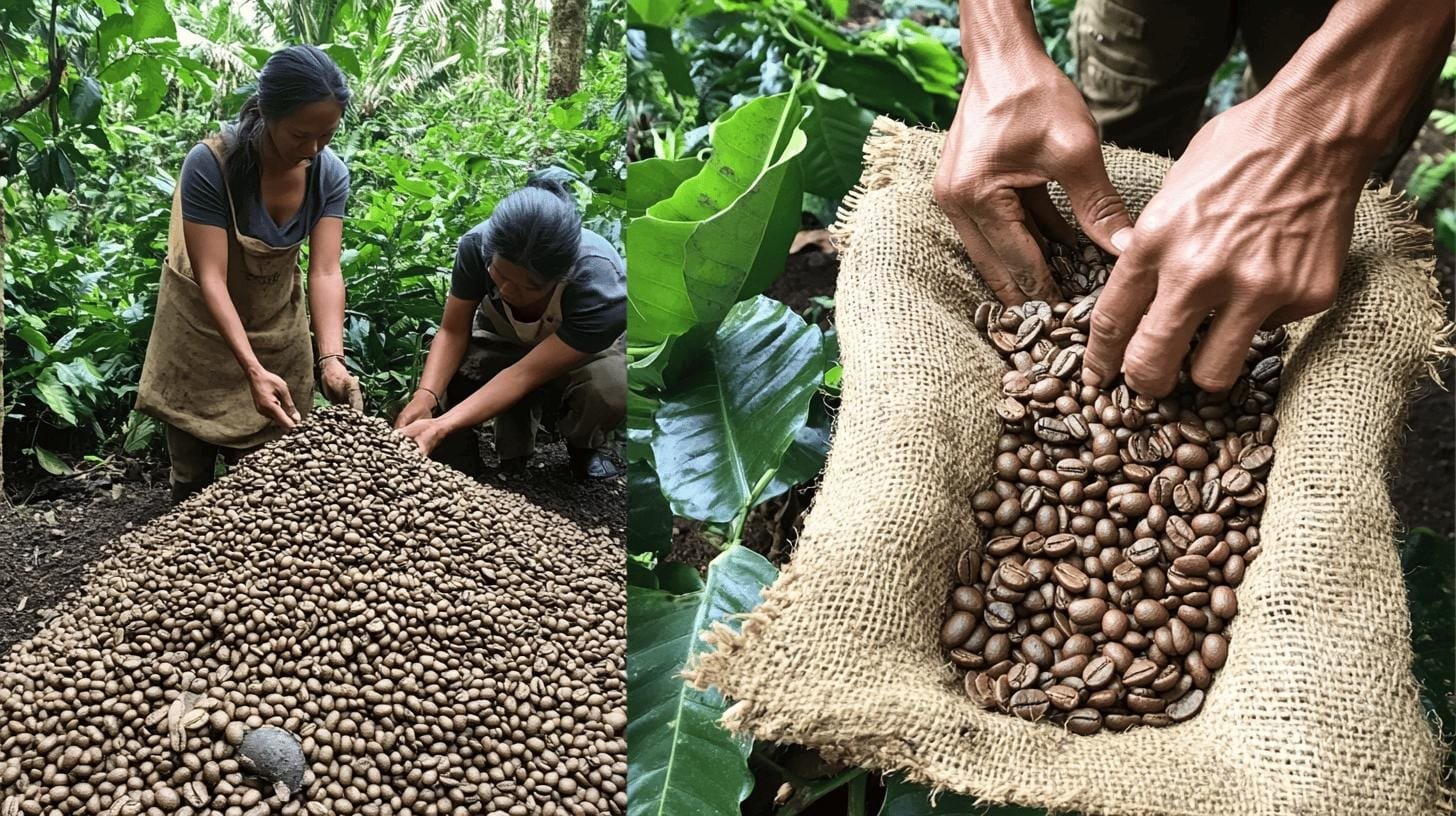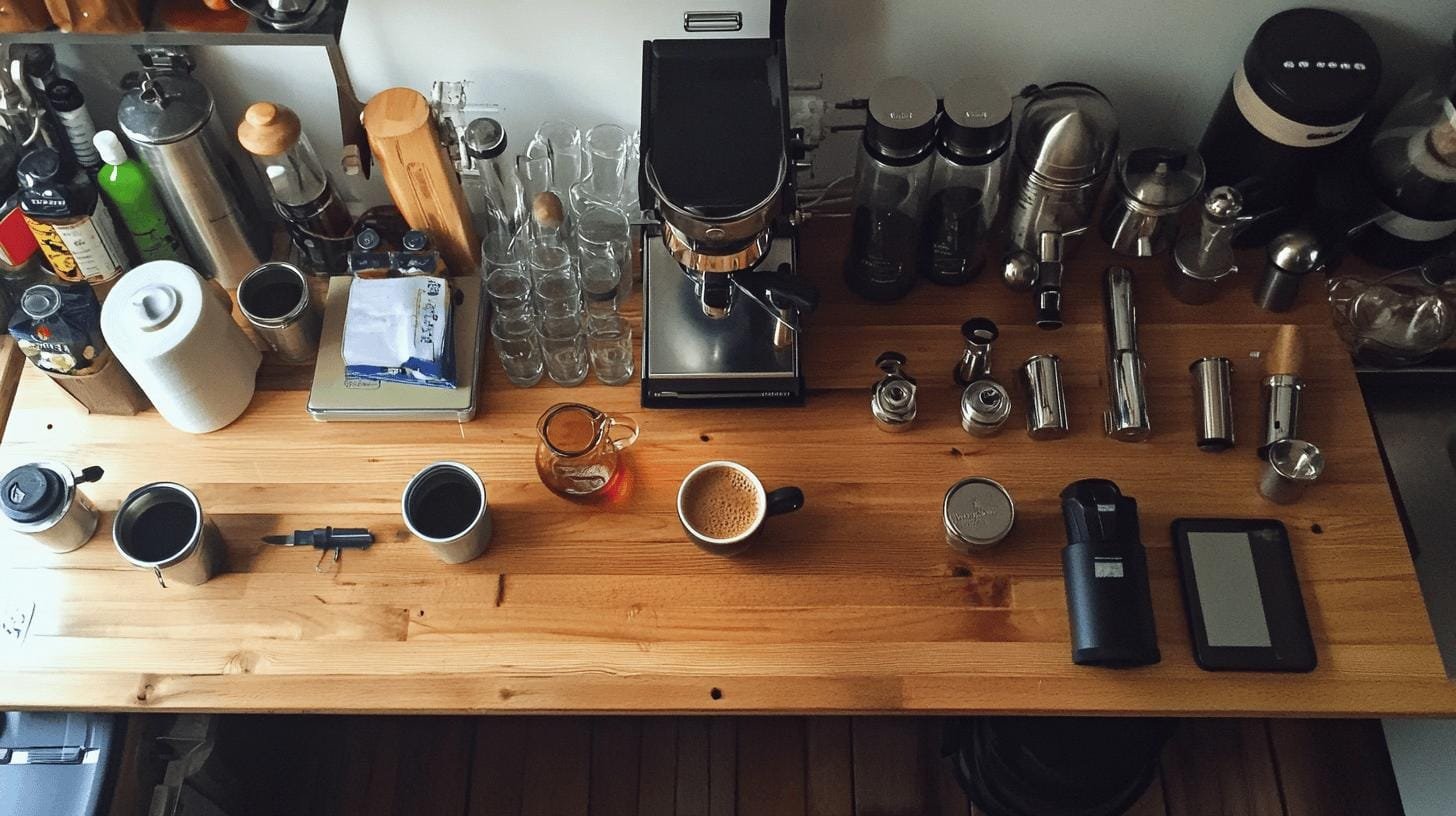
Emerging Approaches Redefining Craft-Focused Customer Experiences
Craft-focused small businesses have always relied on care, precision, and sourcing to stand out. What’s changing now is how those values are shown, not just

Is there truly a difference between artisan coffee vs specialty coffee, or is it all just marketing jargon? Coffee lovers and aficionados often find themselves in the thick of this debate, trying to distinguish which brew reigns supreme. In this analysis, we unpack the intricacies that set these two esteemed categories apart. While artisan coffee celebrates traditional craftsmanship and small-batch production, specialty coffee prides itself on rigorous quality standards and grading. Understanding these nuances is essential for anyone aiming to find the perfect coffee balance or elevate their home coffee experience.
Artisan coffee is all about tradition, craftsmanship, and small-batch production. Artisans handle the coffee-making process, ensuring each batch is roasted to reveal distinctive flavors. They often play with different roasting techniques, focusing on quality beans and the artistic journey of creating a delightful cup. This approach imbues each product with the roaster’s personal touch and expertise, differing from commercial coffee, which is produced on a large scale with less emphasis on individual craftsmanship.
Conversely, specialty coffee adheres to strict quality standards and a rigorous grading process. To qualify as specialty, coffee must score 80 points or higher on a 100-point scale, judged by certified tasters. This system evaluates flavor, aroma, acidity, body, and aftertaste, ensuring only top-quality beans are selected. Specialty coffee is all about consistency—from bean selection to roasting and brewing. This quality assurance often leads to higher prices compared to both artisan and commercial coffee.

Artisan coffee supports sustainability through small-scale farming, using eco-friendly methods and handpicked beans for quality. This lets farmers highlight the unique terroir of their region, offering diverse flavors sought by enthusiasts. The focus on traditional methods extends to sourcing, choosing beans with potential for small-batch roasting. This dedication ensures exceptional taste while fostering ecological balance and fair labor practices.
Specialty coffee emphasizes quality control by using direct trade relationships to secure top-quality beans. This method fosters close partnerships with farmers, ensuring quality from cultivation to cup. It allows precise monitoring of farming, bean selection, and processing, resulting in a superior product. The stringent grading system ensures beans score 80 points or more on a 100-point scale, delivering a premium consumer experience.
Artisan roasting is a skilled and creative process. Small batches allow for control and experimentation to develop unique flavors. This approach embodies craftsmanship, with every batch adjusted for the perfect taste. The personal touch emphasizes the artistry behind each roast, making it distinct from large-scale commercial roasting.
Specialty roasting focuses on precision and consistency, crucial for maintaining high-grade beans’ quality. Strict protocols control roasting parameters like temperature, time, and airflow. This precision preserves beans’ intrinsic qualities, yielding a predictable flavor. Advanced technology monitors each roast, ensuring consistent quality and reinforcing specialty coffee’s excellence.
Home-roasting offers freshness control and personalizes roast profiles. Roasting small quantities ensures peak flavor when brewed. It allows taste customization, experimenting with different roast levels for the perfect cup. Without mass production and long storage, home-roasted beans often provide a vibrant, nuanced flavor experience, preferred by those seeking a personalized coffee journey.

Artisan coffee is celebrated for varied tastes, emphasizing creativity in roasting and brewing. Traditional methods, like pour-over, enhance unique flavors. Experimental techniques, such as unconventional brewing tools, are also common. This artistic focus results in coffee with complexity and surprise, offering a unique flavor journey in every cup.
Specialty coffee delivers consistent taste by using precise brewing and quality controls. Methods like espresso require attention to grind, temperature, and pressure. The goal: predictable flavor meeting high standards. Precision methods, like calibrated espresso machines, ensure each cup’s consistent quality. Consistency reinforces specialty coffee’s quality commitment, providing a reliable experience.
| Brewing Method | Artisan Coffee | Specialty Coffee |
|---|---|---|
| Pour Over | Traditional, hands-on | Precise, consistent |
| Espresso | Creative, variable | Calibrated, exact |
| French Press | Experimental, varied | Standardized, controlled |
| Cold Brew | Artistic, flexible | Structured, uniform |
Specialty coffee often commands higher prices due to its rigorous quality standards and sourcing practices. The strict grading system ensures beans score 80 or higher, justifying its premium price. Attention to quality, from farm to cup, provides predictable flavor, attracting consumers willing to pay for guaranteed quality. Investment in top beans, precise roasting, and controlled brewing also raises costs, positioning specialty coffee as a luxury.
Artisan coffee pricing varies based on brand reputation and production methods. Unlike specialty coffee’s standardized pricing, artisan coffee reflects roaster artistry. Small-batch production, innovative techniques, and unique blends create varied pricing. Artisan coffee appeals to those seeking affordability and enthusiasts willing to invest in unique experiences.
Exploring artisan coffee vs specialty coffee highlights the distinct approaches in crafting the perfect cup. Artisan coffee celebrates traditional methods and small-batch production, dwelling into craftsmanship and diverse flavors. On the other hand, specialty coffee prioritizes strict quality control, with beans graded on a high-point scale for their excellence.
Both coffee types bring unique experiences to enthusiasts, catering to different preferences and budgets. As the coffee industry continues to evolve, understanding these differences enriches one’s appreciation and enjoyment of high-quality coffee offerings.
Artisan coffee prioritizes traditional methods and craftsmanship, frequently in small batches. Specialty coffee, however, is defined by quality, achieving an 80+ score on a quality scale focusing on high-quality beans.
Artisan coffee refers to coffee made using traditional methods with an emphasis on craftsmanship, often produced in small batches to focus on unique flavors and quality.
Artisan coffee offers diverse taste profiles focusing on creativity, while specialty coffee aims for consistent quality, adhering to precise flavor standards that align with high grading criteria.
Artisan coffee brands typically emphasize small-batch roasting and unique flavor profiles, often focusing on sustainable and ethical sourcing practices to distinguish their products.
Specialty coffee has higher price points due to rigorous quality control, while artisan coffee pricing varies based on the roaster’s brand reputation and production methods.

Craft-focused small businesses have always relied on care, precision, and sourcing to stand out. What’s changing now is how those values are shown, not just

How can brands create a more balanced and memorable customer experience by blending artisanal product quality with thoughtful everyday rituals that keep people coming back?

Independent coffee shops have always been about more than caffeine—they’re hubs of creativity, connection, and care. As café culture continues to evolve, new trends are

Introduction Independent cafes win when they feel like the neighborhood’s living room and operate with the discipline of a great kitchen. Below is a quick

Discover how top specialty coffee brands create lasting loyalty through storytelling, sourcing, and community connection. Real tips from 6 industry experts.

Discover the ultimate showdown between two beloved coffee brewing methods: the French press and Chemex. Explore how each technique caters to distinct palates, with the French press delivering bold flavors and the Chemex presenting a bright, clean taste.

Unlock the secrets to brewing the perfect cup of coffee with our comprehensive guide on using a coffee scale. Discover how precise measurements enhance flavor and consistency while eliminating bitterness.

Discover how water temperature plays a vital role in brewing the perfect cup of coffee. This article delves into the ideal temperature range of 195°F to 205°F for optimal flavor extraction, enhancing the enjoyment of high-quality beans.

Discover the world of curated specialty coffee bundles, perfect for enthusiasts seeking quality and craftsmanship. This article explores the benefits of ethically sourced, small-batch beans from brands like Equipoise Coffee, offering diverse flavor profiles that elevate your brewing experience.